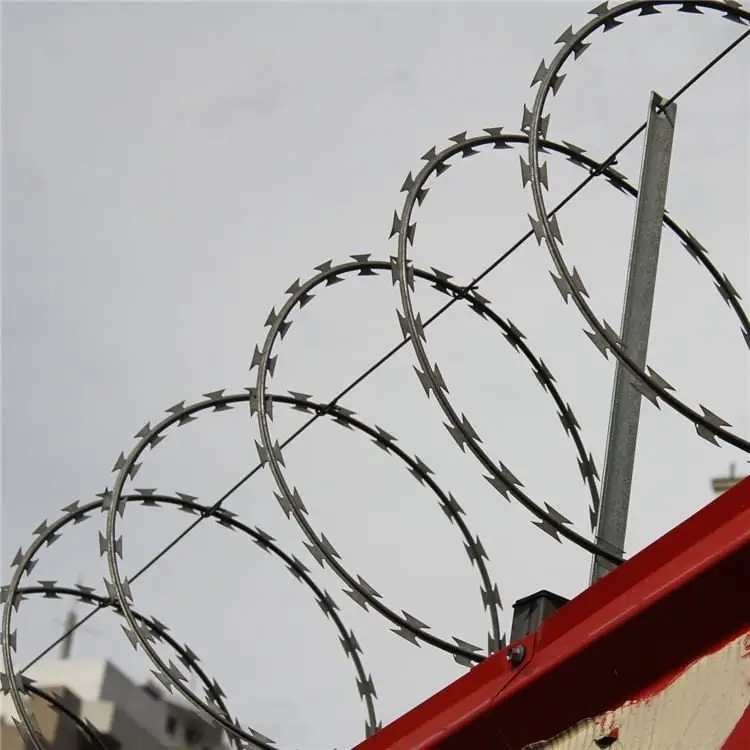Oct . 21, 2024 02:19 Back to list
Creative Solutions for Custom Field Fencing Design and Installation
Exploring the Concept of Custom Field Fencing A Comprehensive Overview
In today’s rapidly evolving agricultural landscape, the need for tailored solutions that meet specific land use and livestock management requirements has never been more critical. Custom field fencing has emerged as a crucial aspect of modern farming practices, providing enhanced security, improved livestock management, and increased land utility. This article delves into the significance, benefits, and considerations associated with custom field fencing.
What is Custom Field Fencing?
Custom field fencing refers to the use of fencing solutions that are tailor-made to suit the specific needs of agricultural land. Unlike standard fencing options, which may not meet the unique requirements of a particular field or farm, custom field fencing takes into account factors such as the type of livestock being managed, topography, soil composition, and intended land use. This bespoke approach allows farmers and landowners to create a fencing solution that is both functional and aesthetically pleasing.
Benefits of Custom Field Fencing
1. Enhanced Security One of the primary advantages of custom field fencing is the enhanced security it provides. By addressing specific vulnerabilities on the property, such as areas prone to wildlife intrusion or theft, custom fencing offers a robust barrier that protects livestock and crops. This peace of mind is invaluable for farmers who invest considerable time and resources into their operations.
2. Improved Livestock Management Custom field fencing can be designed to accommodate different types of animals, whether they are cattle, sheep, horses, or poultry. Each species may have unique requirements in terms of fencing height, material strength, and visibility. By employing a tailored solution, farmers can ensure that their livestock are safe and contained, reducing the risk of escapes and accidents.
3. Aesthetic Appeal Beyond functionality, custom field fencing can enhance the overall appearance of the property. Farmers can choose materials, colors, and styles that complement the landscape. Beautifully crafted fences can also add value to the property, potentially attracting buyers in the future.
4. Increased Land Utility Efficiently designed fencing can optimize land use. For instance, farmers may wish to create specific grazing areas or paddocks that allow for rotational grazing, which promotes soil health and enhances pasture productivity. Custom field fencing makes it possible to redefine the layout of the land according to the farmer’s operational goals.
custom field fence

5. Durability and Longevity By selecting high-quality materials and designing a fence that considers local environmental conditions, custom field fencing can offer superior durability compared to standard solutions. This means that landowners will spend less on repairs and replacements over time, leading to significant cost savings in the long run.
Considerations for Custom Field Fencing
When considering custom field fencing, several factors must be taken into account
1. Material Selection The choice of materials plays a crucial role in the effectiveness and longevity of the fence. Common materials include wood, vinyl, wire, and composite materials. Each has its own advantages and drawbacks, so it’s important to evaluate them based on budget, aesthetics, and intended use.
2. Design and Layout The design of the fence should reflect the specific needs of the land. This includes determining the correct height and structure to contain livestock, as well as accounting for natural barriers and the topography of the land. Consulting with a fencing expert can provide valuable insights into the best design options.
3. Regulatory Compliance It’s essential to check local regulations regarding fencing, as certain regions may have specific requirements or restrictions concerning materials, heights, and distances from property lines. Ensuring compliance can prevent future legal issues and financial penalties.
4. Maintenance Requirements Different types of fencing materials come with varying maintenance needs. Wood, for example, may require regular painting or sealing, while metal fencing might need periodic rust treatment. Understanding these maintenance requirements in advance can help keep the fence in optimal condition over time.
Conclusion
Custom field fencing is an invaluable investment for farmers and landowners seeking to enhance the functionality, security, and aesthetics of their properties. By tailoring fencing solutions to meet specific needs and challenges, landowners can optimize their agricultural practices and achieve greater success in their endeavors. As the agricultural sector continues to advance, embracing innovative solutions like custom field fencing will be essential in meeting the demands of modern farming.
-
Hop Dipped Galvanized / PVC Coated Temporary Fence-Anping County Xingzhi Metal Wiremesh Products Co.,Ltd|Durable Temporary Fencing&Versatile Installation
NewsAug.05,2025
-
Hop Dipped Galvanized / PVC Coated Temporary Fence - Anping County Xingzhi Metal Wiremesh Products Co., Ltd|Durable Construction&Versatile Applications
NewsAug.05,2025
-
Hop Dipped Galvanized / PVC Coated Temporary Fence - Anping County Xingzhi Metal Wiremesh Products Co., Ltd
NewsAug.05,2025
-
Hop Dipped Galvanized/PVC Coated Temporary Fence-Anping County Xingzhi Metal Wiremesh Products Co.,Ltd|Durable, Modular, Corrosion Resistant
NewsAug.05,2025
-
Hop Dipped Galvanized / PVC Coated Temporary Fence-Anping County Xingzhi Metal Wiremesh Products Co., Ltd|Durable Surface Treatments&Versatile Applications
NewsAug.05,2025
-
Steel Expanded Metal Mesh Fence: Secure & Durable Perimeter Solution
NewsAug.05,2025



